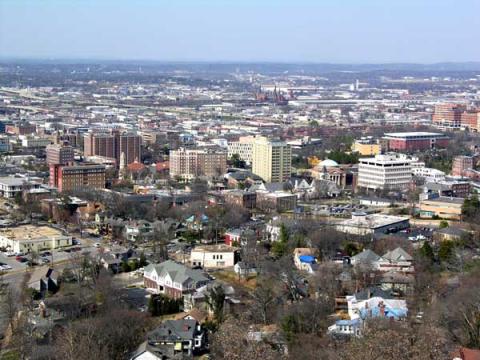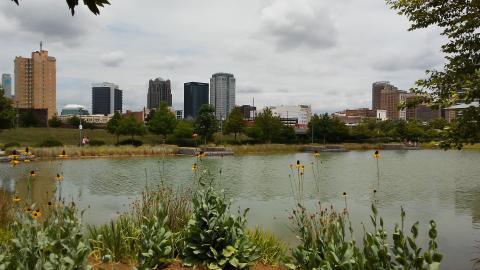Founded in 1871 through the merger of three small towns, Birmingham quickly grew as an industrial center thanks to the exploitation of cheap, non-unionized immigrant and African-American workers and its proximity to iron ore, coal, and limestone deposits (the three raw materials needed to make steel). Named after Birmingham, England, which was then considered one of the world's most renowned industrial centers, its rapid growth earned it the nickname, Magic City.
Similar to northern “rustbelt” cities, Birmingham experienced severe population loss as a result of suburbanization and industrial flight in the latter part of the 20th century. From a peak of 340,887 in 1960, Birmingham’s population is now just 212,157—representing a loss of more than a third of its residents. According to 2016 Census estimates, Birmingham is now 72 percent black, 23 percent white, and 3 percent Hispanic.
As people and jobs left the city, Birmingham experienced significant social and economic challenges. The city has a 29 percent poverty rate, which is well above the state average of 17 percent and more than double the U.S. average of 13 percent. Nearly 19 percent of its residents aged 65 and under lack health insurance, compared to just 10 percent nationwide. Crime is also a significant challenge— Birmingham is ranked the most violent city in the country, and its murder, robbery, and aggravated assault rates are among the five highest of all major U.S. cities.
Working to address Birmingham’s challenges are a range of community wealth building organizations and initiatives. For example, REV Birmingham (REV) is a public-private economic development organization aiming to foster vibrant commercial districts by filling vacant spaces and growing sustainable businesses. To support entrepreneurs, REV offers business development workshops and has a stall in Birmingham’s Pizitz Food Hall where start-up restaurants can launch and receive technical assistance. To expand access to healthy food, REV’s Urban Food Project connects corner stores and restaurants in food deserts to 40 area farms, and helps corner store owners purchase, market, and sell fresh produce.
Also focused on healthy food access is Urban Ministry, a faith-based nonprofit that has provided a range of community-focused programs since 1976 to help support Birmingham’s low-income residents. Through its WE Community Gardens, Urban Ministry provides fair-wage jobs to area youth who help grow 3,500 pounds of fresh, organic produce on an annual basis. The food is sold at affordable rates at community markets, donated to those in need, and used at Urban Ministry’s WE Community Café, which serves quality, healthy food on a “pay what you can” basis while providing job training and employment opportunities for youth who are chronically unemployed or underemployed.
Another noteworthy organization is the Magic City Agriculture Project (MCAP), which helps communities of color and cash poor communities organize community-based democratic institutions and cooperative businesses. The nonprofit also supports a farm located in a city food desert and runs educational social justice programs to help develop the next generation of community leaders and organizers.
An overview of these and other exemplary community wealth building efforts follows:

